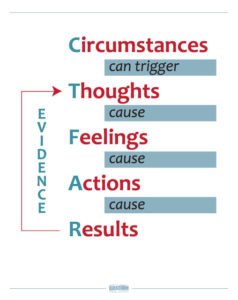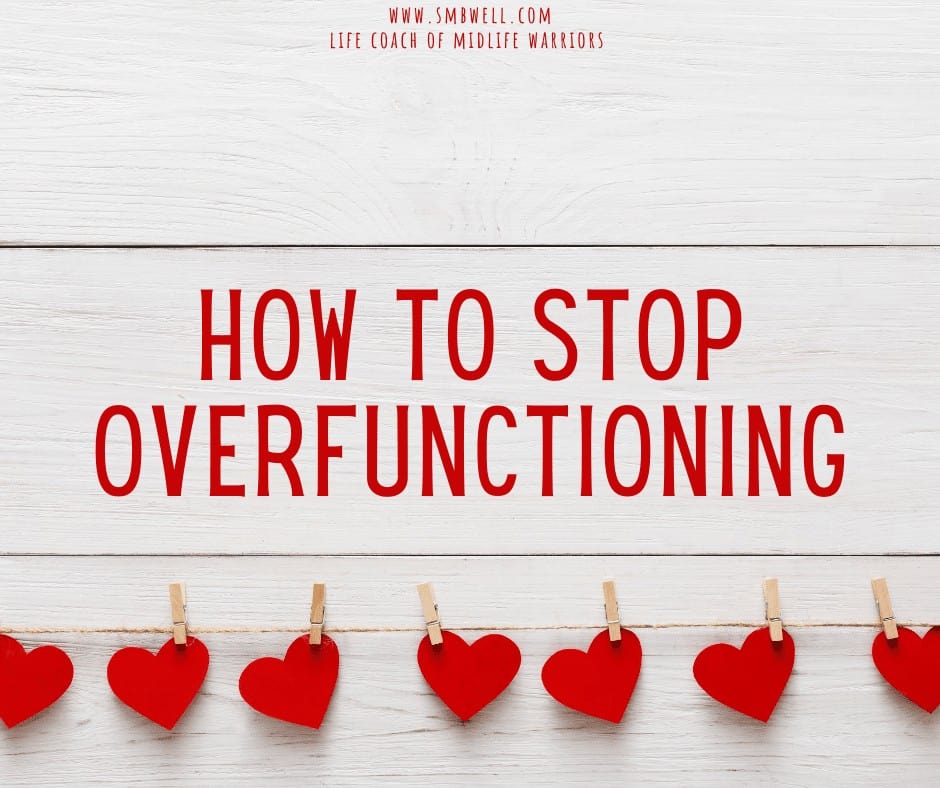Podcast: Play in new window | Download
Subscribe: Apple Podcasts | Spotify | Amazon Music | RSS | More
How to STOP Overfunctioning and FEEL BETTER
Many of us were raised in houses where emotions were not tolerated. This can lead to us feeling responsible for other people’s emotions. Furthermore, we often don’t possess the knowledge of how to emotionally regulate. Consequently, we learn coping skills such as over functioning, perfectionism, and codependency. As adults, learning the skills of how to stop overfunctioning is not only crucial to stop generational harm, it also helps us feel better!
Becoming an emotional adult is, in large part, about noticing how we were parented so that we can show up and be our best self moving forward. Whether you have kids or not is rather irrelevant. Learning about yourself, your triggers, and your strengths is work worth doing. The more aware we are of the foundation upon which our current self is built, the better off all of our relationships are.
Today I present two tools and two thought processes that will help you learn how to stop overfunctioning. Stepping back from codependent or feeling responsible for everyone else’s life takes practice and is work worth doing. All day every day. It will help you feel calmer, more free, and less stressed. These practices lead to deeper, more connected relationships. Keep reading or listen to the episode here.
How to Stop Overfunctioning Tool One: Sucks and Handle
This is a two part technique. First comes the “sucks” part (or “stinks” part, depending on age). The first step is to allow your child to have their emotional experience without trying to change or fix it.
For example, say your kid comes home from school and says her friends wouldn’t sit with her at lunch. Instead of rushing in to codependent parenting, you say something like “Oh darn, that stinks. Tell me more”.
Secondly, we move into the “handle” part of this tool. After they talk for a bit (with you listening, not fixing or giving advice), they will seem a bit calmer. They are on their way to processing the emotion and being emotionally regulated! It’s time for the second part of this tool: the handle part.
An example here would be you asking something like “How are you going to handle it?” or “What would you do if this happens again”? This tool helps us step out of fix-it, overfunctioning mode while also allowing the other person to build confidence, critical thinking, and problem solving tools. If you want more examples of this in real life, listen to the podcast episode here.
How to Stop Overfunctioning Tool Two: Your Neighbor’s Kid
Undoubtably, this tool is one of my most effective. When I parent as if it’s my neighbor’s kid or a random kid at Starbucks, I have a different perspective which leads to a calmer, less reactive me.
In real life this could look like your kid coming home and saying they bombed their biology test. As a mom, I may go straight to fear brain and fix-it mode. I may think (or ask) things like “What? How did that happen?”, “Should I call the teacher?”, or “Is there a make up test?” Drama drama drama!
On the other hand, if I pause to think “what if this was my neighbor’s kid”, I’m less fearful and dramatic. For me, it’s a lot easier to listen to the child and let them have their emotion. Furthermore, I’m more able to empathize and hold space for their feeling instead of slipping into codependent parenting move 101, fixing it. I may say things like “oh darn – that sounds awful” or “I’m sorry”. Nonetheless, I let my kid feel their feelings and learn the lesson they need to learn. I do not step into overparenting or overfunctioning.
How to Stop Overfunctioning with Deliberate Thinking
Our thoughts cause our feelings which drive our actions. Overfunctioning, fixing, codependency, helicopter parenting, etc are all in the action line of the though model. 
Mantras are thoughts we choose deliberately to practice over and over until we believe them. When I practice these two thoughts, I allow my nervous system to stay out of the “FEAR MUST FIX” mode that gets us into trouble as humans and creates anxiety for our kids.
This is not mine to fix
First deliberate thought I think: this is not mine to fix. I remind myself that whatever is going on in the other human’s life, is not mine to fix. If it were mine, it would be happening in my life. The more I practice this, the easier it is for me to step back into supportive mode which is a wonderful person for my kids and husband to relate with.
Humaning is hard. The more cheerleaders and support staff we have for our journey, the better this all is. It is not my job to fix my son’s failed biology test, my daughter’s angsty lunch experience, my husband’s unfair work interaction. My job is to pour love on them and support them as they move through their life.
This is part of their journey
The second deliberate thought I practice is: “This is part of their journey to become the strong young man/woman they will become”. I consciously step back and think that whatever is happening in their life is happening as part of a bigger plan. I remind myself I am not God. I am not the universe. I am not in charge of everyone’s life and what is happening in everyone’s life is not my fault or responsibility. They are having an experience.
So that’s it dear warrior, two tools and two mantras to practice. I promise double pinky promise you that if you start practicing these you’ll begin to feel better and the relationships in your life will improve. And, if you are a parent of kids 10 and over and haven’t yet taken my parenting course, what are you waiting for? It’s designed to be taken by one or both parents and will help you feel better and calmer about your parenting. Run on over – you matter to me.






Trackbacks/Pingbacks